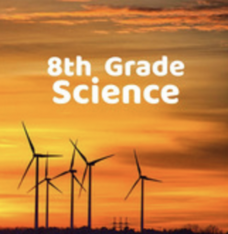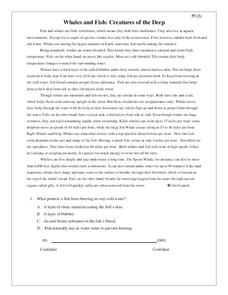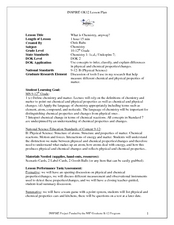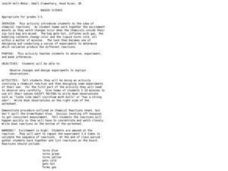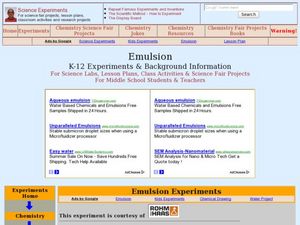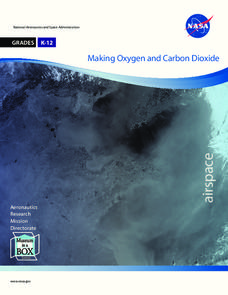Utah Education Network (UEN)
Utah Open Textbook: 8th Grade Science
The cycle of energy is important to many different systems on Earth. Scholars use questioning and observation to investigate the differences between renewable and non-renewable resources and how they relate to global changes. They...
Curated OER
Water in Earth's Hydrosphere
Environmentalists test stream water for temperature, pH, and turbidity. Each group shares their information and then the class makes an overall evaluation of the water quality. A slide show sets the backdrop for the teaching portion and...
Curated OER
Whales and Fish: Creatures of the Deep
Practice comparing and contrasting details in informational text with a reading passage about whales. It explains the ways that fish and whales are similar, as well as the ways they are different, and specific characteristics of various...
Curated OER
What's the Matter with My Orange?
Students use oranges to informally explore decomposition, dehydration, fermentation, the water cycle, bacteria, yeast, food webs, the needs of living things, and physical vs. chemical change over a period of three or more months.
Curated OER
Chemistry: Balancing Chemical Equations
Eighth graders practice balancing chemical equations. In this chemistry lesson plan, 8th graders explain why it is necessary to balance equations. They complete practice worksheets individually.
Curated OER
Things Are Heating Up
In this science instructional activity, students read about chemical changes. Students also answer 3 comprehension questions about the reading.
Curated OER
The Chemistry Connection
In this proteins worksheet, students read about the chemical compound, protein. Students determine where proteins are found in the body and how enzymes help the body react. Then students complete 3 short answer questions.
Curated OER
What Is Chemistry, Anyway?
Students differentiate physical and chemical change. For this chemistry lesson, students list examples of those changes. They apply what they learned in a Jeopardy style team game.
Virginia Department of Education
States and Forms of Energy
Energy is just energy, right? Explain various forms of energy to your young scientists by using an interactive experiment that contains common objects to demonstrate complex concepts. Pupils conduct experiments for radiant, thermal,...
Curated OER
Candy Reaction
In this triboluminescence worksheet, young scholars use wint-o-green Lifesavers to observe a chemical reaction that gives off light. They break a lifesaver up with a hammer and make observations and they chew a lifesaver and make...
Curated OER
Conservation of Mass
In this conservation of mass worksheet, students design an investigation to demonstrate the Law of Conservation of Mass. Students describe their investigation, collect data, graph the data and write a conclusion about what they discovered.
American Chemical Society
Using the Combining Test to Identify Unknown Liquids
Once investigators have learned how their mystery liquids interact with water during the preceding activity, they now use their observations to identify them. This is an ideal conclusion to the mini unit on the properties of water.
American Chemical Society
Using Color to See How Liquids Combine
Blue-tinted water is added to unknown liquids that have been tinted yellow to find out how they interact. This is a memorable activity that is part of an investigation on the properties of liquids, which is part of a unit on the...
Virginia Department of Education
A Crystal Lab
Young chemists grow ionic crystals, metallic crystals, and supersaturated crystals in three different lab experiments. Observing these under a microscope allows pupils to compare the various structures.
Curated OER
It's in the Bag!
Eighth graders measure temperature changes and make drawings of the interactions between matter and energy. By measuring the temperature students can conclude if there are changes in levels of energy.
.
Curated OER
Baggie Science
Students observe and describe a chemical reaction. For this chemistry lesson, students record observations of the materials they will be using, then follow a written procedure to perform the experiment in a baggie and record their...
Curated OER
Biodiesel Combustion and Its Influences in NOx Emissions
Tenth graders evaluate the physical mechanisms that cause a change in NOx emissions. For this combustion lesson, 10th graders participate in a research project. Students create a presentation of their findings.
Curated OER
Ziplock Chemistry
Students investigate various chemical reactions when creating mixtures in ziplock baggies. In this chemistry lesson, students will recognize various chemical reactions and cite evidence. Safety and assessment strategies are included in...
Curated OER
Mixed Review-Chemistry
In this chemistry review activity, students answer a variety of questions about matter, elements, the kinetic theory, chemical and physical properties and the distillation process. They complete a concept map about matter.
Curated OER
Emulsions
Students identify the characteristics and composition of emulsions. In this chemistry lesson, students classify household products according to emulsion type. They explain how to make the best emulsion.
Curated OER
Household Chemistry
Young scholars use indicator paper to determine if substances are acidic, basic, or neutral. They test for Ph levels in them. They investigate the effect of oxygen on darkening fruit cut and exposed to the air. They observe vitamin C as...
Curated OER
Introduction to Materials Science - Part B
Students are able to give specific examples of what to do and what not to do during given safety situations, and classify materials as metals, polymers, ceramics/glass, or composites. They are able to distinguish between chemical and...
Curated OER
Alchemists' Theory of the Elements
In this alchemy worksheet, students read about the early thoughts of alchemists regarding elements. Students are given an experiment done by an alchemist during the Middle Ages and they answer three questions about the experiment knowing...
NASA
Making Oxygen and Carbon Dioxide
Some like it hot! Scholars observe both exothermic and endothermic reactions as part of the carbon dioxide oxygen cycle. First, scientists demonstrate (or watch) a chemical reaction to create pure oxygen using fire for confirmation....


